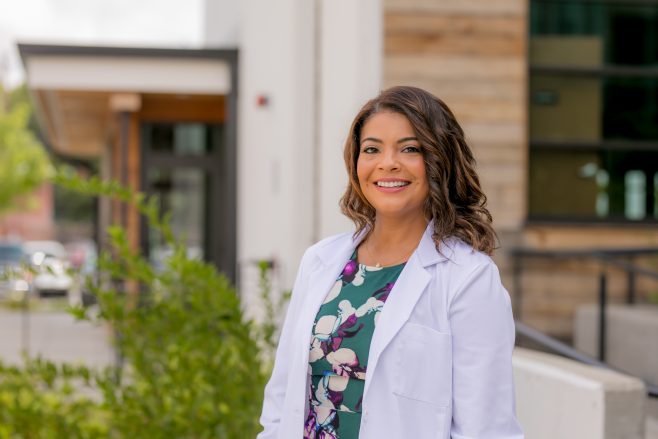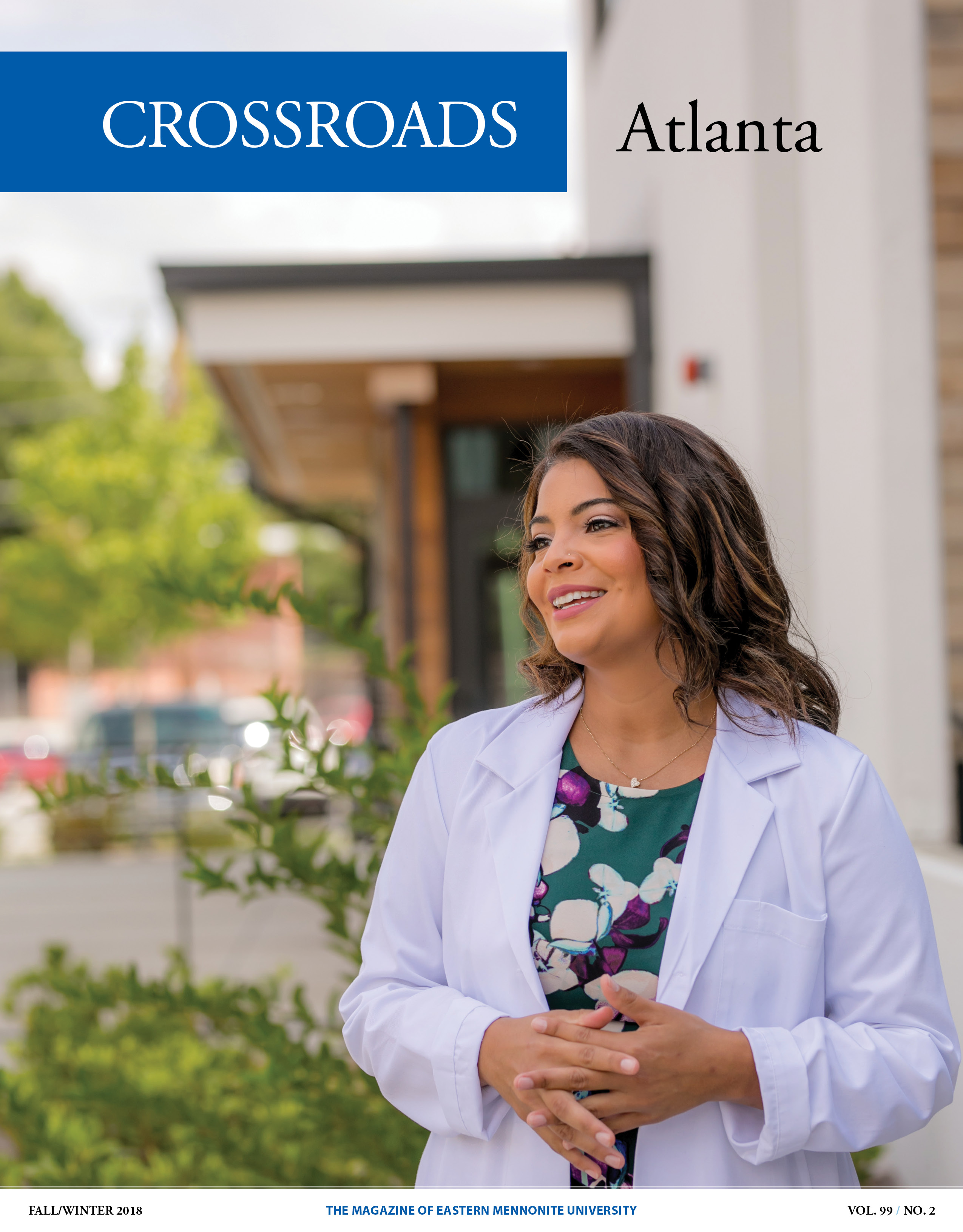
Natalie Bonilla Romero ’09 trained as a doulah while a teenager in New York City but expanded her health care knowledge at EMU. She spent several years as an emergency room nurse before becoming a nurse practitioner.
QUICK MEDICAL APPOINTMENTS and “making sure all the patients get taken care of the right way” don’t always equate, Natalie Bonilla Romero ’09 said recently. A nurse practitioner in an Atlanta-area clinic, she’d just gotten off work late, again. A patient with “pretty basic” upper respiratory symptoms also had unrelated lab test results Romero wanted to explain.
“That, in a nutshell, is primary care,” she said – not with resignation, but with conviction that what she offers her patients is making a difference.
At a very early age, Romero found herself in a health care provider role. Her dad and mom, from Colombia and Ecuador respectively, and extended family relied on her for interpreting at medical appointments and translating documents. She observed quickly “a need for more representation of the Hispanic community in health care.”
She became interested in midwifery, and as a teen became a doula. After her family moved from New York City to Lancaster County, Pennsylvania, Romero gained experience through connections with Amish midwives.
When she enrolled in community college, though, she was encouraged to broaden her training and pursue a nursing degree, and she soon transferred into EMU’s nursing program.
It was difficult, landing on an unfamiliar campus where she knew no one, had no car, and was hours away from her parents – and the coursework wasn’t easy, either. She had to retake a couple classes, and remembers the pressure of knowing that passing was a requisite for advancing.
“My dad was a cab driver in New York City, and my mom was a housekeeper,” she said. “I felt like my parents came to this country to make something amazing out of their lives, and although that couldn’t happen for them, they instilled these values and morals in me, to say, ‘You are going to make a difference.’”
Mastering those difficult classes and ultimately graduating, she believed, would be proof of that – and would be a “sort of saying ‘Thank you.’”
She hunkered down in the library. “I pretty much became a hermit,” she said – a determined one: “‘I’m gonna do this,’” she remembers telling herself. “‘This is what I set out to do.’ I finished and passed, but I struggled and I studied.”
Once she found her footing, she fell in love with the EMU social scene, was active in the Latino Student Alliance, connected personally with professors (that connection continues: last fall she met with Professor Laura Yoder for dinner), and appreciatively attended chapel services.
“It was definitely where I needed to be, the small community,” she said. “I like that the professors knew my name, knew where I came from, what my story was about. That made a difference.”
After graduating from EMU, Romero spent time in community and emergency medicine, in part at Gwinnett Medical Center in Atlanta. Caring for a spectrum of the population, and not providing only maternity care, felt right: “This is the role that I was really meant to fill,” she realized.
Romero continued working and enrolled in a dual-degree, three-year program, and earned her MSN and nurse practitioner’s licence. Now, she’s seeing her own impact, a culmination of her life’s experiences, particularly when she meets with patients grateful for a Spanish-speaking care provider.
“As I walk into a room, patients look at what I would look like, and they start speaking in Spanish,” she said. “We immediately have that rapport – and yet we’ve only said ‘Hello.’”
That translates into better care.
“You bypass this gap in medicine because they already feel like, ‘Oh well, she’s kind of like my family member, and she understands exactly what I’m about to tell her,’” she said. “It leads to that connection with them and therefore the trust that you need.”
